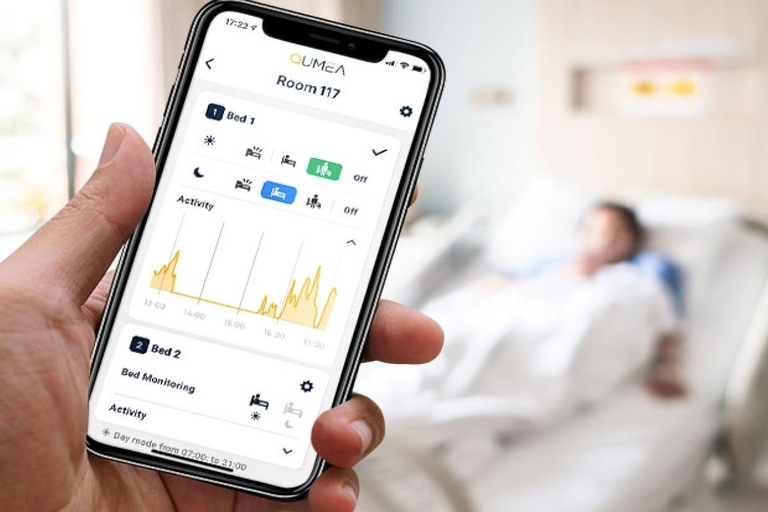Do., Okt. 12th 2023
A Swiss start-up has developed a 3D radar sensor that continuously monitors activity and mobility on hospital wards and automatically calls for help, depending on the individual needs of each patient.

About 2% of hospitalised patients fall at least once during their stay, resulting in high costs, injury and more time spent in hospital. Every fall that is prevented saves tens of thousands of Swiss francs.
A monitoring and warning system developed by Swiss start-up Qumea, based on a 3D radar sensor that can be attached to the ceiling of patients’ wards, detects all human movement and can trigger an alarm depending on the setting. The data collected is sent to the cloud and processed by algorithms so that caregivers are alerted when patients need help.
The system allows patients in hospitals and care facilities to be monitored without anyone sitting near them and supervising. With an app, individual monitoring scenarios can be configured for each patient, specifying the point at which the alarm is triggered. A variety of situations are detected, such as unplanned bed exits, restlessness or falls. Through early detection, falls and setbacks in recovery can be prevented, minimising the length of a patient’s stay in hospital.
According to Qumea, the three-dimensional radar, which is attached to the ceiling of the ward, detects 100 million movement points per second and determines their exact position in the room. Using this movement data, industry-leading AI recognises a person’s position, posture and condition. As the system is based exclusively on 3D radar technology and does not record any video or audio, privacy is fully protected.
The start-up’s fall prevention and mobility monitoring solution is now an integral part of the Swiss hospital and care landscape, which, according to Qumea, means over 30 clients. This year, Qumea completed its largest installation to date at the well-known Swiss Hirslanden Clinic Group. In addition, the system is already being used in hospitals in Sweden, Finland, Germany and Austria as well as Switzerland. The 30-strong team is currently working on a Series A funding round to enable further international expansion.
(Source: SWISS.TECH)
